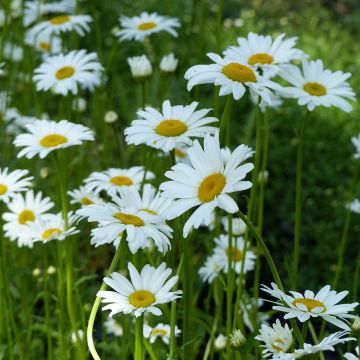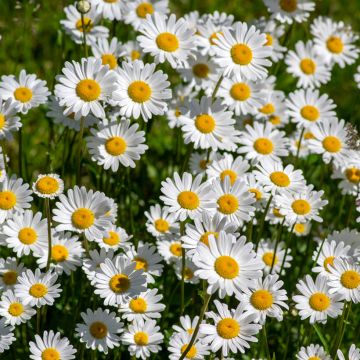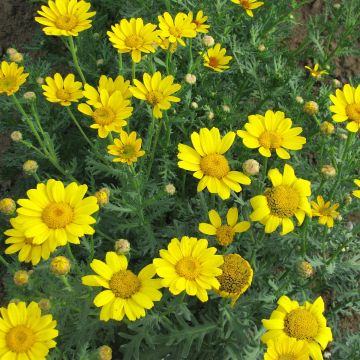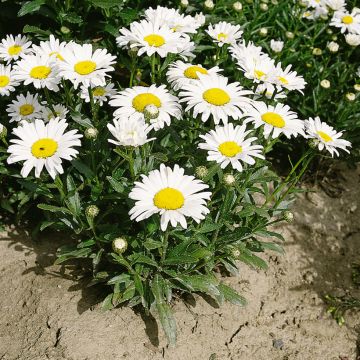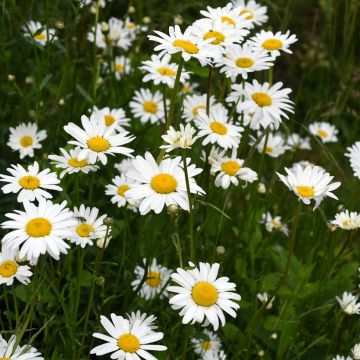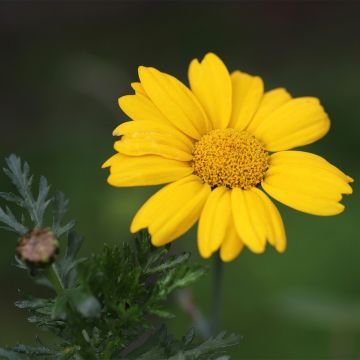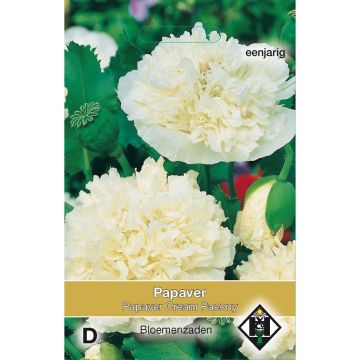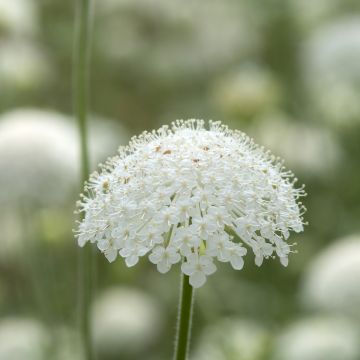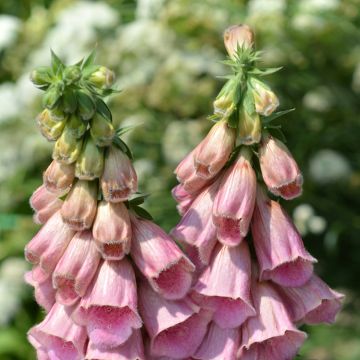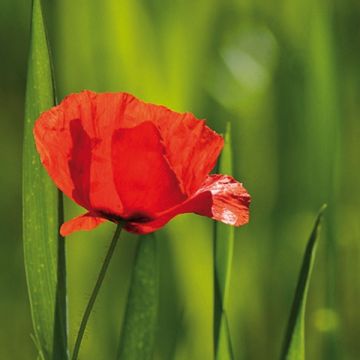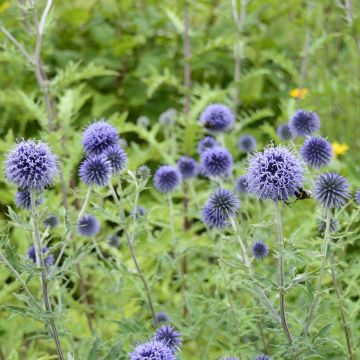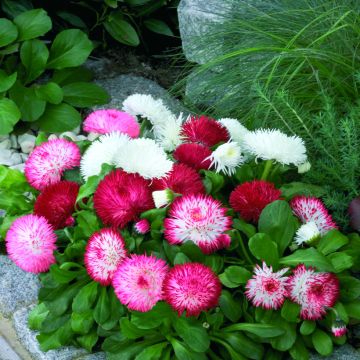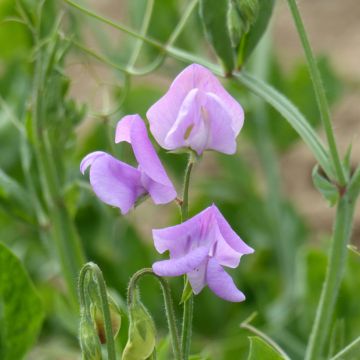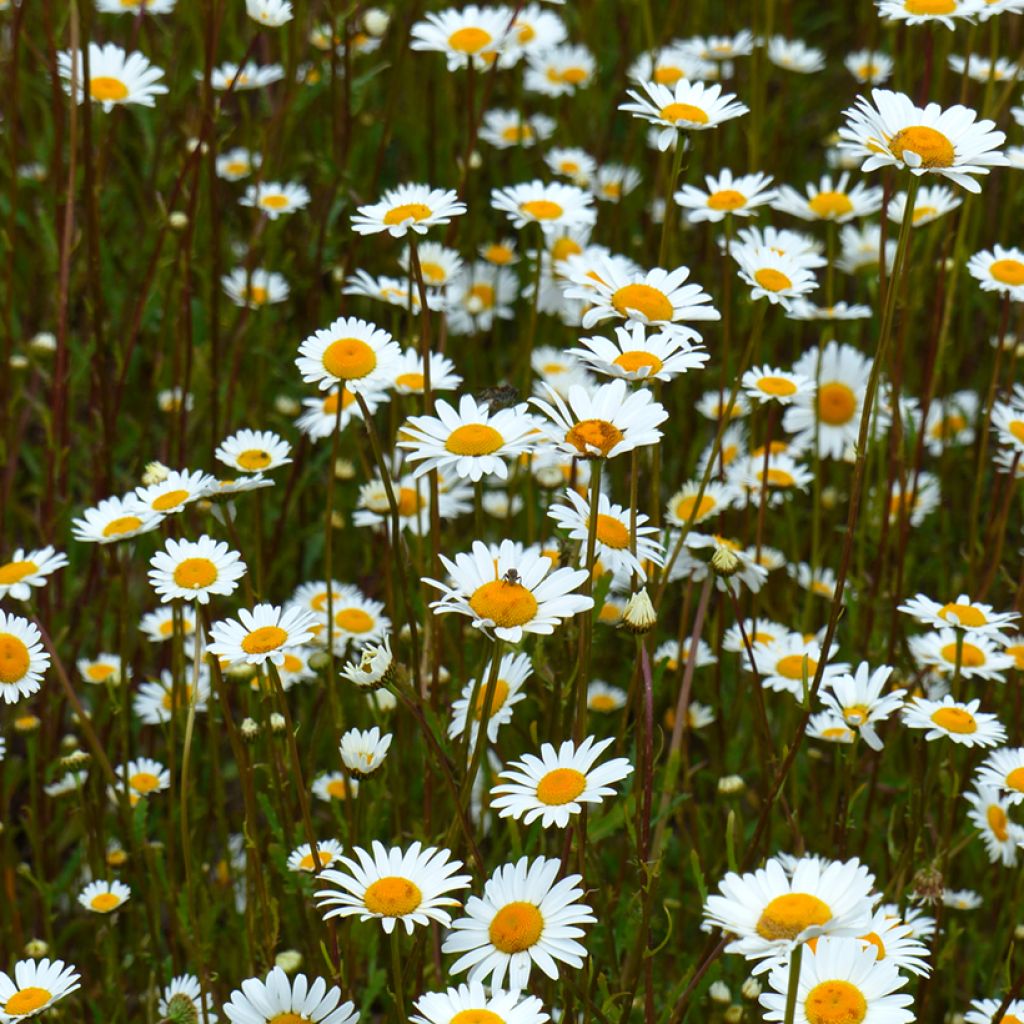

Leucanthemum vulgare - seeds
Leucanthemum vulgare - seeds
Leucanthemum vulgare
Daisy, Oxeye Daisy, Dog Daisy
This item cannot be shipped to the selected country
Dispatch by letter from €3.90
More information
Schedule delivery date,
and select date in basket
This plant carries a 6 months recovery warranty
More information
We guarantee the quality of our plants for a full growing cycle, and will replace at our expense any plant that fails to recover under normal climatic and planting conditions.
Seed-only orders are dispatched by sealed envelope. The delivery charge for seed-only orders is €3.90.
Does this plant fit my garden?
Set up your Plantfit profile →
Description
Leucanthemum vulgare is a charming plant with white daisy-like flowers with yellow centres that bloom all summer. They are nectar-rich so attract pollinators to the garden and make excellent cut flowers. This easy-to-grow, perennial plant will make a sensation in a countryside border or in the vegetable garden. The young leaves and ligules (or petals) can be consumed in salads. This plant thrives in sunny locations and prefers moist, well-drained soil. Sow between March and June.
From the Asteraceae family, the genus Leucanthemum includes 26 species of annual or perennial plants native to temperate Asia or Europe. They grow on rocky slopes or in damp meadows. Leucanthemum vulgare is a clump-forming perennial reaching 60 to 90 cm in height when in bloom. It has 2 types of leaves. The basal leaves are dark green, lanceolate, toothed and petiolate. Others develop on the stem and are sheathing and crenate. From June onwards, the oxeye daisy is covered with 2 to 5 cm diameter flower heads carried on long stems, perfect for wildflower bouquets. They consist of a yellow disc of florets surrounded by white ligules or petals.
The ligules are edible and can add colour to your salads. The young leaves can also be consumed in salads. The flower buds can be cooked like capers. The oxeye daisy has digestive and calming properties similar to chamomile.
In the garden, this nectar-rich plant will find a place in the vegetable garden where it will attract bees and butterflies. It can also be combined with Cosmos Cosimo Red White and Lupin Gallery Pink for a wildflower border.
Report an error about the product description
Flowering
Foliage
Plant habit
Botanical data
Leucanthemum
vulgare
Asteraceae
Daisy, Oxeye Daisy, Dog Daisy
Chrysanthemum leucanthemum var. pinnatifidum, Leucanthemum vulgare var. pinnatifidum, Chrysanthemum leucanthemum
Western Europe
Other Daisy seeds
Planting and care
Leucanthemum vulgare prefers sun or light shade and a preferably moist and well-drained soil. It adapts well to poor or occasionally dry soils. It is an easy plant, resistant to cold and not very water-demanding.
Sow your oxeye daisies in March-April indoors in pots or trays containing a mix of light compost and sand, and keep them at a temperature of 15 to 18°C. Place your trays in a bright location. Cover your seeds very lightly, as they need light to germinate. The substrate should be kept moist, but not waterlogged. Germination should occur within 21 to 28 days. Once the plants are strong enough, you can transplant them into larger pots if the risk of frost has passed. Once the soil has warmed up, plant your daisies in the garden.
Space your plants about 30 cm apart.
It is also possible to sow directly in place, but in this case, you will have to wait until May, once the risk of frost has passed. Thin out every 30 cm, keeping only the most developed plants.
Sowing period
Intended location
This item has not been reviewed yet - be the first to leave a review about it.
Flower seeds
Haven't found what you were looking for?
Hardiness is the lowest winter temperature a plant can endure without suffering serious damage or even dying. However, hardiness is affected by location (a sheltered area, such as a patio), protection (winter cover) and soil type (hardiness is improved by well-drained soil).

Photo Sharing Terms & Conditions
In order to encourage gardeners to interact and share their experiences, Promesse de fleurs offers various media enabling content to be uploaded onto its Site - in particular via the ‘Photo sharing’ module.
The User agrees to refrain from:
- Posting any content that is illegal, prejudicial, insulting, racist, inciteful to hatred, revisionist, contrary to public decency, that infringes on privacy or on the privacy rights of third parties, in particular the publicity rights of persons and goods, intellectual property rights, or the right to privacy.
- Submitting content on behalf of a third party;
- Impersonate the identity of a third party and/or publish any personal information about a third party;
In general, the User undertakes to refrain from any unethical behaviour.
All Content (in particular text, comments, files, images, photos, videos, creative works, etc.), which may be subject to property or intellectual property rights, image or other private rights, shall remain the property of the User, subject to the limited rights granted by the terms of the licence granted by Promesse de fleurs as stated below. Users are at liberty to publish or not to publish such Content on the Site, notably via the ‘Photo Sharing’ facility, and accept that this Content shall be made public and freely accessible, notably on the Internet.
Users further acknowledge, undertake to have ,and guarantee that they hold all necessary rights and permissions to publish such material on the Site, in particular with regard to the legislation in force pertaining to any privacy, property, intellectual property, image, or contractual rights, or rights of any other nature. By publishing such Content on the Site, Users acknowledge accepting full liability as publishers of the Content within the meaning of the law, and grant Promesse de fleurs, free of charge, an inclusive, worldwide licence for the said Content for the entire duration of its publication, including all reproduction, representation, up/downloading, displaying, performing, transmission, and storage rights.
Users also grant permission for their name to be linked to the Content and accept that this link may not always be made available.
By engaging in posting material, Users consent to their Content becoming automatically accessible on the Internet, in particular on other sites and/or blogs and/or web pages of the Promesse de fleurs site, including in particular social pages and the Promesse de fleurs catalogue.
Users may secure the removal of entrusted content free of charge by issuing a simple request via our contact form.
The flowering period indicated on our website applies to countries and regions located in USDA zone 8 (France, the United Kingdom, Ireland, the Netherlands, etc.)
It will vary according to where you live:
- In zones 9 to 10 (Italy, Spain, Greece, etc.), flowering will occur about 2 to 4 weeks earlier.
- In zones 6 to 7 (Germany, Poland, Slovenia, and lower mountainous regions), flowering will be delayed by 2 to 3 weeks.
- In zone 5 (Central Europe, Scandinavia), blooming will be delayed by 3 to 5 weeks.
In temperate climates, pruning of spring-flowering shrubs (forsythia, spireas, etc.) should be done just after flowering.
Pruning of summer-flowering shrubs (Indian Lilac, Perovskia, etc.) can be done in winter or spring.
In cold regions as well as with frost-sensitive plants, avoid pruning too early when severe frosts may still occur.
The planting period indicated on our website applies to countries and regions located in USDA zone 8 (France, United Kingdom, Ireland, Netherlands).
It will vary according to where you live:
- In Mediterranean zones (Marseille, Madrid, Milan, etc.), autumn and winter are the best planting periods.
- In continental zones (Strasbourg, Munich, Vienna, etc.), delay planting by 2 to 3 weeks in spring and bring it forward by 2 to 4 weeks in autumn.
- In mountainous regions (the Alps, Pyrenees, Carpathians, etc.), it is best to plant in late spring (May-June) or late summer (August-September).
The harvesting period indicated on our website applies to countries and regions in USDA zone 8 (France, England, Ireland, the Netherlands).
In colder areas (Scandinavia, Poland, Austria...) fruit and vegetable harvests are likely to be delayed by 3-4 weeks.
In warmer areas (Italy, Spain, Greece, etc.), harvesting will probably take place earlier, depending on weather conditions.
The sowing periods indicated on our website apply to countries and regions within USDA Zone 8 (France, UK, Ireland, Netherlands).
In colder areas (Scandinavia, Poland, Austria...), delay any outdoor sowing by 3-4 weeks, or sow under glass.
In warmer climes (Italy, Spain, Greece, etc.), bring outdoor sowing forward by a few weeks.

































